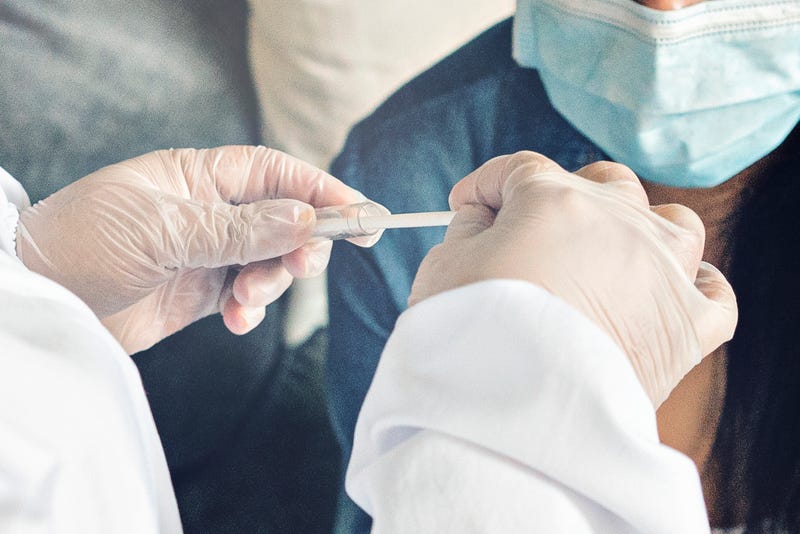
SAN FRANCISCO (KCBS RADIO) – The United States Centers for Disease Control and Prevention has announced that omicron subvariant BA.5 is now the dominant COVID-19 strain in the U.S., and health experts warn even if you've had a recent infection, you may not be immune.
For more, stream KCBS Radio now.
Dr. Peter Chin-Hong, Infectious Disease Specialist at UCSF, told KCBS Radio's "Ask An Expert" that even those who have had a recent COVID-19 infection are susceptible to the new variant, as well as its counterpart BA.4.
"The superpower of BA.4 and BA.5 is reinfection," he said. "So far we've thought that getting a recent case of omicron or getting a recent case of COVID kind of gets you a 'get out of jail pass,' but it's not turning out to be true for BA.4 and BA.5."
As of July 2, BA.5 accounts for 53.6% of all infections in the United States, with BA.2.12.1 responsible for 27.2% and BA.4 responsible for 16.5%, the CDC reported.
Previously within the pandemic, health experts told those who had a COVID-19 infection they would be immune to reinfection for six to nine months, which was then downgraded to 90 days. Now, Chin-Hong said this period of antibody immunity may be down to nothing.
"By getting previous versions or flavors of omicron, you are not protected against BA.4 or BA.5 that well," he warned.
Health experts first became aware of this diminished immunity based on surge numbers in South Africa and Portugal. "In South Africa there were about 90% of people who saw BA.1, and then turns out they had this huge surge with BA.4 and BA.5. We saw the same thing in Portugal and now we're starting to see the same thing in the U.S.," Chin-Hong explained. "BA.1 is not such a great immunogen, so it doesn't protect you against the future omicrons."
DOWNLOAD the Audacy App
SIGN UP and follow KCBS Radio
Facebook | Twitter | Instagram

